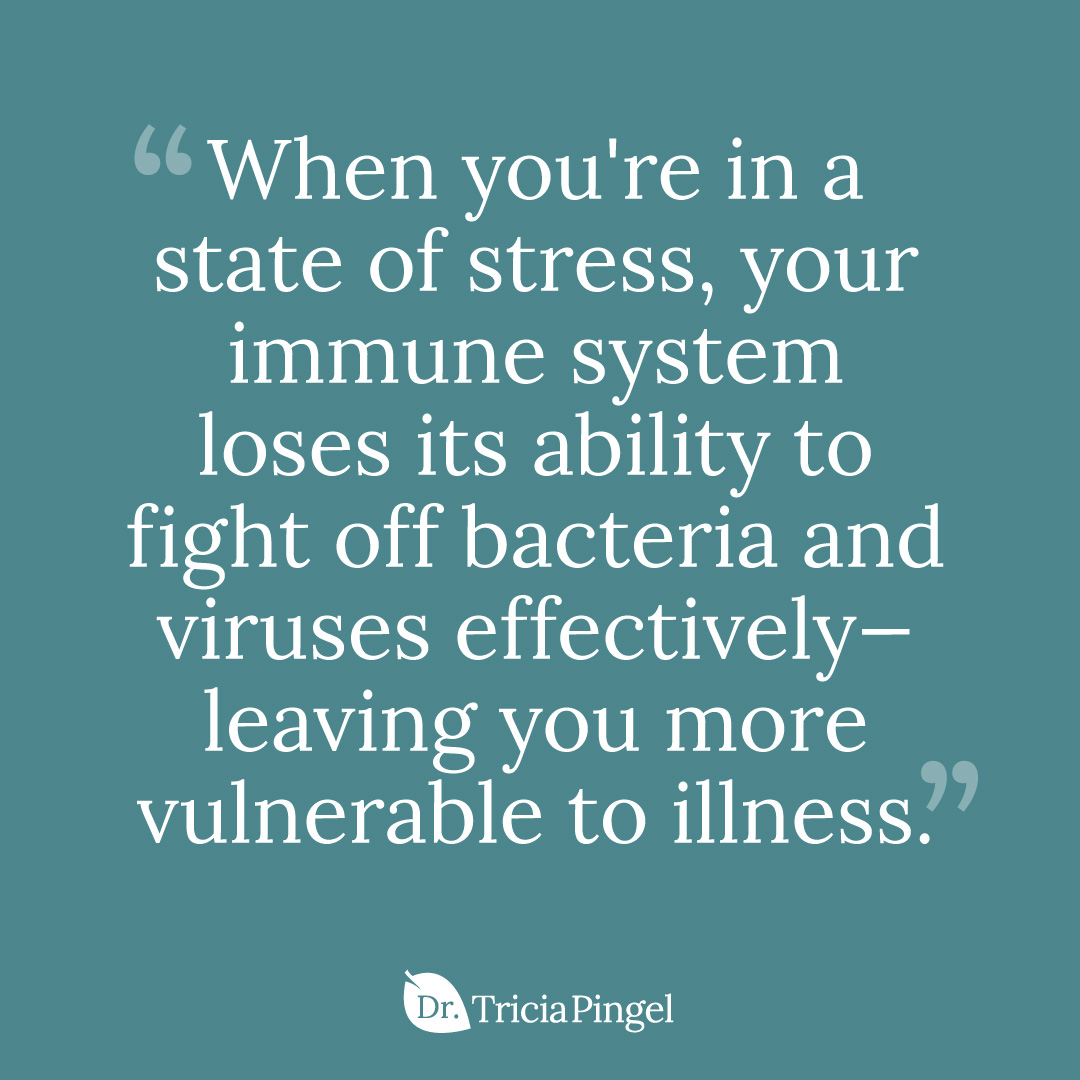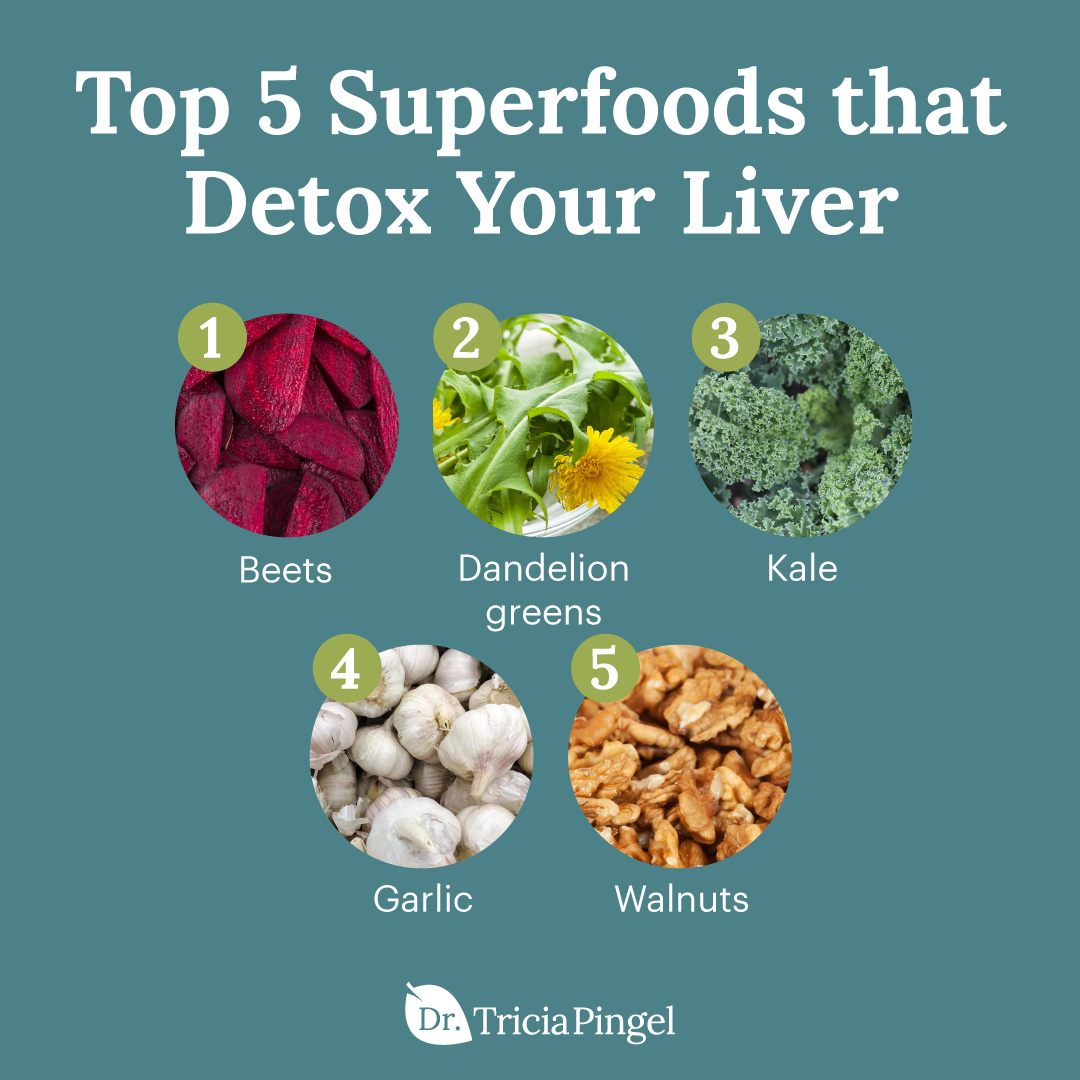Signs You’re Under Too Much Stress (+ What You Can Do About It Now!
Did you know that April is National Stress Awareness Month? Over the last several months, I’ve spent a lot of time discussing how stress impacts your health and why it's so important to support your body's stress response if you want to overcome diseases and major health conditions. But what are some of the top signs you’re under too much stress? Would you know them if you experienced them?
Odds are pretty high that you may be so used to it, that you’re missing some of these critical signs. And while it may seem like stress and anxiety have been in overdrive these past few weeks, the truth of the matter is that we're a chronically stressed nation—and have been for quite a while. The uncomfortable (and scary) reality is that we’re only making ourselves sicker. But, the great news is that there is hope. After all, we can do something about it!
So, let’s take a look at the shocking stats regarding stress in our nation and then learn about the top signs you're under too much stress and what you can do about it—starting right now!
The Modern State of Stress
As I said above, while it feels like our society has been under an extreme amount of stress and anxiety in these last few weeks, the truth is that we’re a chronically stressed nation. Believe it or not, you probably so used to feeling this way, you don’t even notice it anymore. It probably feels normal or like you’re just a busy person.
The problem is that your body wasn’t built to handle constant stress over long periods of time. Instead, your adrenal glands were designed to handle short-term bouts of stress, and when that stressor is gone, they are able to relax. But what’s happening is that you’re dealing with constantly stressors: relationships, your job, finances, the never-ending pinging of your smartphone … the list just goes on.
When you have a situation of chronic stress, your adrenal glands go into overdrive to try to help your body adapt so that it can keep functioning. But, at some point, these glands are no longer able to keep up and they become fatigued. And that’s when the real problems begin, because adrenal fatigue is linked to so many health issues. In fact, take a look at how chronic stress is impacting the health of our nation today: [1]
- Approximately 120,000 deaths each year are attributed to work-related stress.
- 77 percent of Americans regularly experience physical symptoms due to stress.
- 63 percent of workers are ready to quit their jobs due to stress.
- 57 percent of those who regularly feel stressed say they're paralyzed by stress.
- 50 percent of Americans regularly lie awake at night due to stress.

Perhaps the most shocking statistic here? Anywhere from 75 to 90 percent of all doctor’s office visits are for stress-related problems! [2] But there’s more.
According to a 2008 scientific article, emotional stress is a major contributing factor to the top six leading causes of death in the U.S: cancer, coronary heart disease, accidental injuries, respiratory disorders, cirrhosis of the liver, and suicide. [3] When you really think about it, it’s not really too surprising that we’re such a chronically ill nation. But how do you know if you’re chronically stressed? Let’s take a look at the top signs you’re under too much stress.
6 Signs You're Under Too Much Stress
Not surprisingly, many of the signs you’re under too much stress are the same signs and symptoms of adrenal fatigue. [4]
- Mood swings and irritability
- Irregular sleeping patterns and/or insomnia
- Low libido
- Feeling emotional
- Changes in appetite (feeling ravenous or no appetite)
- Frequent illnesses (such as colds, flus, etc.)
3 Stress Management Tips
If you find that you’re showing some of the signs you’re under too much stress, it’s imperative that you find ways to help manage your stress so that you don’t start to experience more serious symptoms. Here are a few stress management tips to get you started:
1. Get moving.
Whether you like to dance, walk in nature, or do some slow, peaceful yoga poses, movement is a great way to help decrease your stress load. In fact 53 percent of Americans report that staying active helps to manage their stress. And 12 percent of people credit yoga and/or meditation with helping to reduce their stress. [5]
Here are some fun ways you can get moving to support your body’s stress management. And if you can, try to get out in nature for your movements. It’s important to reconnect with your environment for stress management and take in the fresh air.
2. Prioritize emotional support.
Almost 75 percent of Americans state that having an emotional support system is essential for helping them manage stress. Staying connected with those closest to you, including your friends and family, can offer great emotional support during trying, stressful times. But that’s not all.
It’s also important to love yourself. A huge part of the mind-body connection is reconnecting with yourself as well and giving yourself permission to make mistakes and learn from them. If necessary, remember to forgive yourself for past mistakes as well. Fully accepting yourself will go a long way in helping you to prioritize your health and wellness.
3. Support your adrenal health.
Last, but certainly not least, is the need to support your adrenal gland health. Because your adrenal glands control how your body responds to and manages stress, making sure they stay healthy is the single most important thing you can do to fight chronic stress.
You can check out my article on adrenal fatigue for more information on how to get started. And if you find that you want even more specific insight, along with a full 30-day program to help you regain your health by prioritizing your adrenal health, check out my brand-new program: The Total Health Turnaround Program. It’s full of delicious recipes, a 30-day meal plan, movements, herbal suggestions, and mind-body tips to help you overcome adrenal fatigue and achieve your optimal health!
Key Takeaways
- We're a chronically stressed nation—and have been for quite a while. And we're only making ourselves sicker with the mounting stress we're experiencing.
- Some of the top signs you're under too much stress include experiencing mood swings, sleeping difficulties, low libido, emotional distress, changes in appetite, and frequent illnesses.
- Three of the best ways you can manage your stress include exercising (especially in nature), prioritizing emotional support, and supping your adrenal health.




